I am trying to add Serilog to an Azure Function app (.Net 6.0) and of course its not writing to a file. When I run the program, I can see in the console '[15:58:00 INF] Hello World!'. So then why not to the file? My other question is why do I see '[16:03:24 INF] null'? My long term goal is to log to a blob on Azure. Thank you for your help.
using Microsoft.Azure.WebJobs;
using Microsoft.Azure.WebJobs.Hosting;
using Microsoft.Extensions.DependencyInjection;
using Microsoft.Extensions.Logging;
using System;
using Serilog;
using Serilog.Events;
using Serilog.Extensions.Logging;
using SerilogFunctionApp;
using ILogger = Microsoft.Extensions.Logging.ILogger;
[assembly: WebJobsStartup(typeof(Startup))]
namespace SerilogFunctionApp
{
public class Startup : IWebJobsStartup
{
public void Configure(IWebJobsBuilder builder)
{
string basedir = AppDomain.CurrentDomain.BaseDirectory;
Log.Logger = new LoggerConfiguration()
.MinimumLevel.Information()
.WriteTo.Console()
.WriteTo.Debug()
.WriteTo.File(basedir + "/logs/log-.txt", rollingInterval: RollingInterval.Day, rollOnFileSizeLimit: true)
.CreateLogger();
builder.Services.AddLogging(lb => { lb.AddSerilog(Log.Logger, true); });
}
}
public class Function1
{
//other code
private ILogger _log;
public Function1(ILoggerFactory loggerFactory)
{
_log = loggerFactory.CreateLogger<Function1>();
}
[FunctionName("Function1")]
public void Run([TimerTrigger("0 */1 * * * *")] TimerInfo myTimer, ILogger log)
{
_log.LogInformation($"C# Timer trigger function executed at: {DateTime.Now}");
Log.Information("Hello World!");
}
}
}
I found a StackOverflow about adding the Startup to a function which looked different that what I posted aboved so I tried modified my app and still there's no logging to the file.
using Microsoft.Extensions.DependencyInjection;
using Microsoft.Extensions.Logging;
using System;
using Microsoft.Azure.Functions.Extensions.DependencyInjection;
using Microsoft.Azure.WebJobs;
using Serilog;
using ILogger = Microsoft.Extensions.Logging.ILogger;
[assembly: FunctionsStartup(typeof(SerilogFunctionApp.Startup))]
namespace SerilogFunctionApp
{
public class Startup : FunctionsStartup
{
public override void ConfigureAppConfiguration(IFunctionsConfigurationBuilder builder)
{
var context = builder.GetContext();
//builder.ConfigurationBuilder
// .AddJsonFile(Path.Combine(context.ApplicationRootPath, "appsettings.json"), optional: true, reloadOnChange: false)
// .AddJsonFile(Path.Combine(context.ApplicationRootPath, $"appsettings.{context.EnvironmentName}.json"), optional: true, reloadOnChange: false);
}
public override void Configure(IFunctionsHostBuilder builder)
{
// get the configuration from the builder
var configuration = builder.GetContext().Configuration;
string basedir = AppDomain.CurrentDomain.BaseDirectory;
Log.Logger = new LoggerConfiguration()
.MinimumLevel.Information()
.WriteTo.Console()
.WriteTo.Debug()
.WriteTo.File(basedir + "/logs/log-.txt", rollingInterval: RollingInterval.Day, rollOnFileSizeLimit: true)
.CreateLogger();
builder.Services.AddLogging(lb => { lb.AddSerilog(Log.Logger, true); });
}
}
public class Function1
{
//other code
private ILogger _log;
public Function1(ILoggerFactory loggerFactory)
{
_log = loggerFactory.CreateLogger<Function1>();
}
[FunctionName("Function1")]
public void Run([TimerTrigger("0 */1 * * * *")] TimerInfo myTimer, ILogger log)
{
_log.LogInformation($"C# Timer trigger function executed at: {DateTime.Now}");
Log.Information("Hello World!");
}
}

